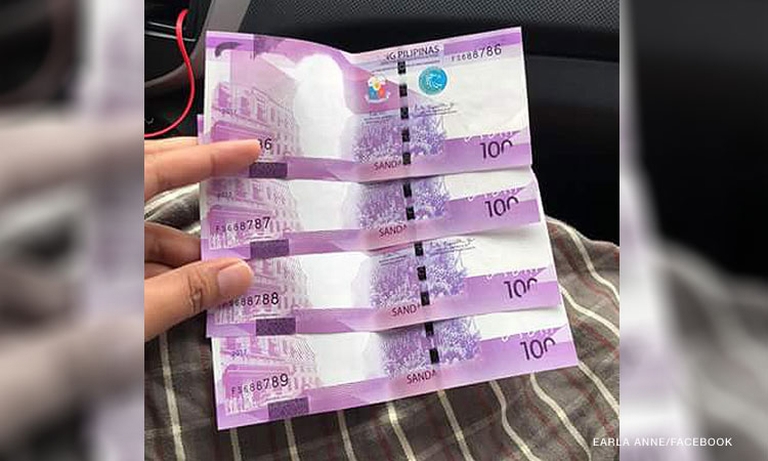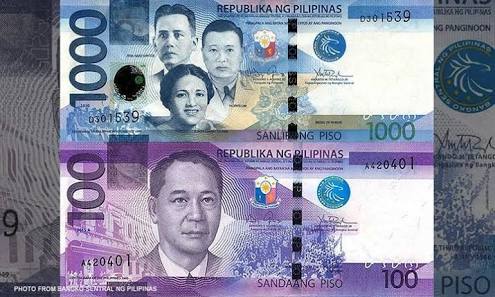The Curious Case of the Disappearing Faces on Philippine Peso Bills
/The suspected bills (Source: Earla Anne's Facebook)
As she started to count the crisp P100 bills she had withdrawn, she noticed something eerie. Some of the bills were “faceless.”
The P100 bill currently in circulation has the photo of former Philippine President Manuel Roxas on the obverse and of Mayon Volcano on the reverse.
She posted the faceless bills on her Facebook account and the post immediately went viral.
Was it a hoax? Were the bills Photoshopped?
Well, not according to The Banko Sentral ng Pilipinas (Central Bank of the Philippines).
In a media briefing following its own investigation, BSP admitted that the bills came from its printing plants, and that a glitch in one of its newer machines caused the misprint. The bank claimed only 33 faceless bills were printed, representing just 0.00009% of the entire batch from that machine.
Ironic
Ironically, this is not the first controversy that involved the P100 bill.
Many Filipinos have complained that the P100 bill looks very similar to the P1,000 bill. This has caused not only confusion for the visually challenged, but also shortchanging by vendors and the like.
The new P100 bill now has a more pronounced hue compared to the P1,000 bill (Source: Cnn Philippines)
This prompted the Central Bank to re-issue new P100 bills with a different and more pronounced hue than the P1,000 bills.
Missing Mayon Volcano
The bill controversy did not stop with the faceless P100 peso currency.
Days before the New Year, a certain Emmanuel Claudio Constantino claimed in a Facebook post that he received a P100 bill with the face of Roxas on both the obverse and reverse sides. This time, it was the image of Mayon Volcano that was missing.
Constantino said he got the bill as change when he bought sparklers in a public market for the New Year’s Eve celebration.
The Central Bank is also investigating this case but said it was not ruling out a hoax or a Photoshop job.
Now, About Those P500 Bills
As expected, reports of the misprinted/Photoshopped peso bills drew a social media feast, with netizens posting their own concocted versions of the Philippine currency.
Some even “appealed” to the Central Bank to replace the photos of Ninoy and Cory Aquino on the P500 bills. Still, a few substituted the couple’s photos with that of NoyNoy Aquino. “It remains in the family,” they seemed to suggest.
Collector’s Item?
As for the BSP-misprinted bills, the bank has promised to replace them at the same value with genuine currency.
But Earla Ann has been receiving unsolicited advice and offers. Many have told her to keep the misprinted bills as they could eventually demand much greater value as a collector’s item. Others are not waiting for that time. They have actually made offers to purchase the bills from Earla Ann.
Misprints are nothing new. In 1983, the Central Bank issued new 50 centavo coins but some of them had a misspelling of Pithecophaga jefferyi (Latin for Philippine Eagle, the misprinted coin is on the right) (Source: sinsilyonimike.wordpress.com)
In the meantime, social media posts of Photoshopped Philippine peso bills have died down, until, of course, the next curious case...
(Incidentally, new coins have just been released by the Central Bank)
So, next time you’re in the Philippines, keep an eye on those peso bills.
Rene Astudillo is a writer, book author and blogger and has recently retired from more than two decades of nonprofit community work in the Bay Area. He spends his time between California and the Philippines.
More articles from Rene Astudillo





